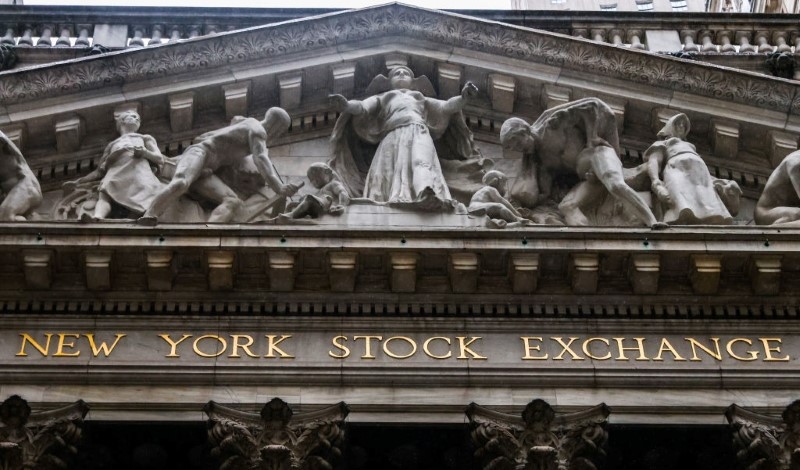
Scholars advocate greater accountability for lawyers who guide what public firms share with investors.
Climate change could cost the global the economy $178 trillion over the next half century.
To protect investors from economic loss, the U.S. Securities and Exchange Commission (SEC) recently proposed a rule that would require public companies to identify and disclose to investors climate-related risks, such as a corporation’s greenhouse gas emissions and vulnerability to extreme weather events. The SEC posits that awareness of these factors would help investors make better informed judgments about potential investments as the climate changes.
To some scholars, however, the proposed climate change disclosure rule raises old concerns about lawyers’ role in the corporate disclosure process. In a recent article, professors J. Robert Brown, Jr. and Eli Wald of the University of Denver Sturm College of Law argue that the proposed rule would fall flat for the same reason other disclosure requirements fail: It depends on the legal opinions of securities lawyers who face pressure from corporate management to advise against disclosure.
Under the Securities Exchange Act of 1934, the SEC has authority to protect stock market investors by requiring public companies to disclose relevant business information. To ensure public companies disclose important climate-related risks to the public, Brown and Wald argue the SEC must also use its authority under the Sarbanes-Oxley Act to set and enforce minimum standards of professional conduct for securities lawyers. In the absence of SEC action, they recommend that Congress create an independent oversight organization for securities lawyers.
Brown and Wald explain that under the current disclosure system, when the SEC imposes a duty to disclose, a public company’s executive management team must share “material” information with investors. Material information means that which a “reasonable investor” would find important. For example, regulators have considered significant financial losses material. Because deciding whether something is material involves a legal question, management often relies on advice from lawyers to make these determinations.
This system, however, can result in inadequate disclosure because management may pressure lawyers to advise that important information need not be disclosed. Management may then escape liability for nondisclosure by pointing to their reliance on the lawyers’ advice.
Brown and Wald explain that giving investors bad news can decrease a company’s stock price, leading to investor scrutiny and criticism. Because stock market performance often determines executive compensation, disclosure can then decrease managers’ pay. Consequently, management might insist that securities lawyers advise that climate-related risks facing the company are not material and, therefore, that the corporation should not disclose such risks.
According to Brown and Wald, lawyers have incentives to succumb to the pressure, even if that means giving bad advice. Increased competition in the legal market and a shift toward client-centered service have encouraged lawyers to defer to client demands to avoid losing valuable corporate clients.
Brown and Wald argue that lawyers, too, escape liability for nondisclosure due to insufficient disciplinary controls. The rules that govern lawyers’ professional conduct fail to provide specialized guidance for securities lawyers, and they impose only permissive—not mandatory—reporting requirements for client misconduct. Due to limited resources, regulators typically enforce these rules against small law firms instead of prosecuting the large, wealthy law firms that often advise public companies.
To fix the disclosure problem and ensure that the proposed climate change disclosure rules have their intended effect if they are finalized, the federal government should create greater accountability for securities lawyers, Brown and Wald suggest.
They point out that the U.S. Congress intended for the SEC “to protect investors from unprofessional conduct by lawyers” when it passed the Sarbanes-Oxley Act in 2002. Brown and Wald urge the SEC to use its authority under the Act to impose a clearer set of standards for securities lawyers advising clients on disclosure. Brown and Wald identify several areas in which the SEC could implement standards to ensure that lawyers correctly determine the materiality of business information and, consequently, whether their clients should disclose such information.
For example, Brown and Wald contend that lawyers who give disclosure advice should not represent both the company and its managers. They elaborate that this dual representation creates a conflict of interest when disclosing information about climate-related risks would benefit the company’s investors but hurt managers.
Brown and Wald also argue that lawyers should have a duty to warn clients about the risks associated with an incorrect disclosure choice. Brown and Wald suggest that if lawyers qualify their advice, lawyers would place greater responsibility for the ultimate decision on company management, thereby boosting accountability of public companies.
Brown and Wald also call for lawyers to ground any advice they provide in an adequate factual basis. Instead of relying on management to provide the relevant information, lawyers should investigate suspected inaccuracies and identify information about which a company cannot guarantee accuracy, Brown and Wald propose.
Similarly, Brown and Wald contend that lawyers should maintain contemporaneous records to support the reasonableness of their advice. They argue that this standard would deter counsel from caving to management pressure because regulators could use such records to evaluate lawyers’ advice in any future enforcement action, increasing the likelihood of liability.
If the SEC fails to implement more robust standards of professional responsibility for securities lawyers, Brown and Wald urge Congress to create an independent regulatory body to oversee these lawyers. They point to the Public Company Accounting Oversight Board’s success supervising auditors and argue that a similar body could improve lawyers’ conduct.
Brown and Wald predict that the SEC’s proposed climate change disclosure rules are an early example of potentially broader mandatory disclosure requirements that the SEC and other regulators will apply to public companies. The authors urge, however, that such requirements will not achieve their intended results if they rely on materiality without also implementing stricter standards of professional conduct for lawyers who assist public companies in these disclosures.
Brown and Wald conclude that until the disclosure system compels lawyers to take responsibility for their materiality advice, companies will not disclose all of the information that investors need to make climate-informed decisions.



